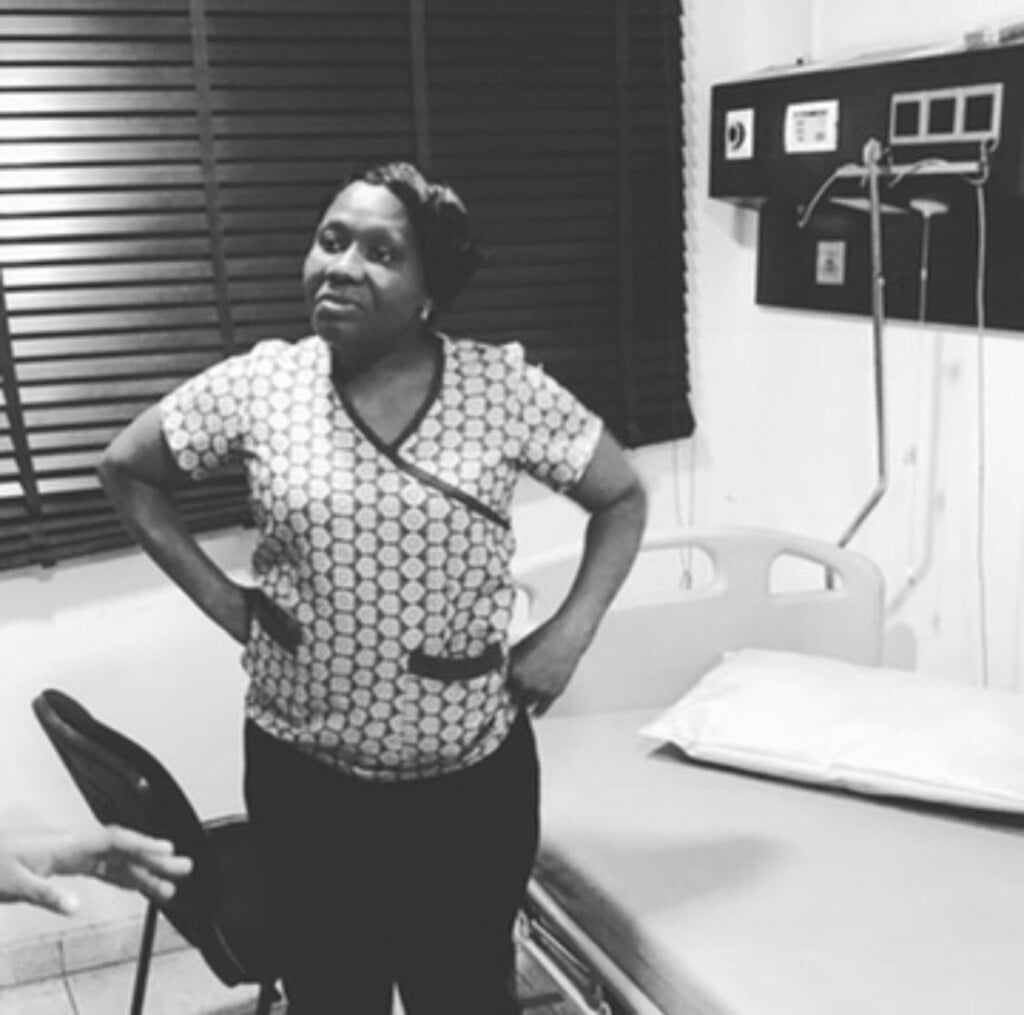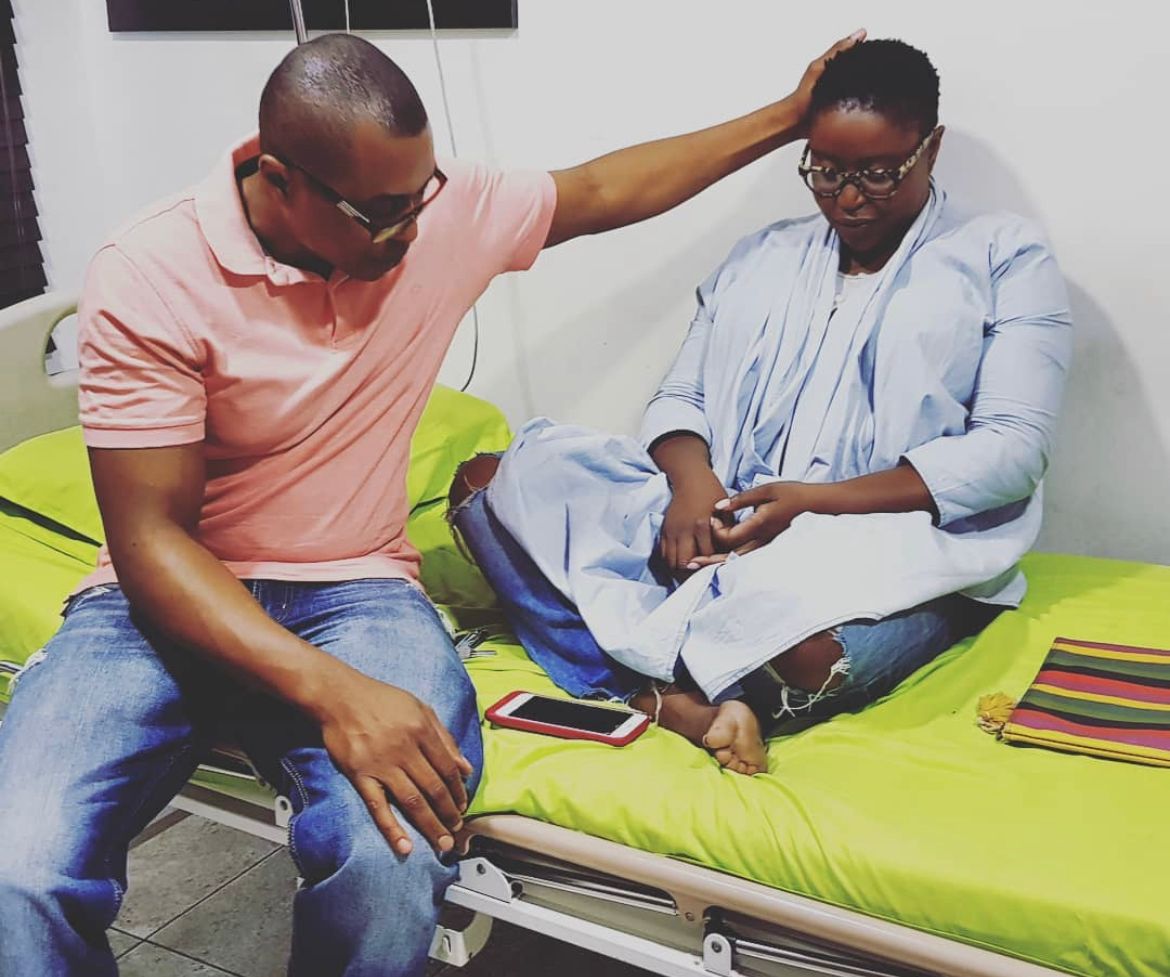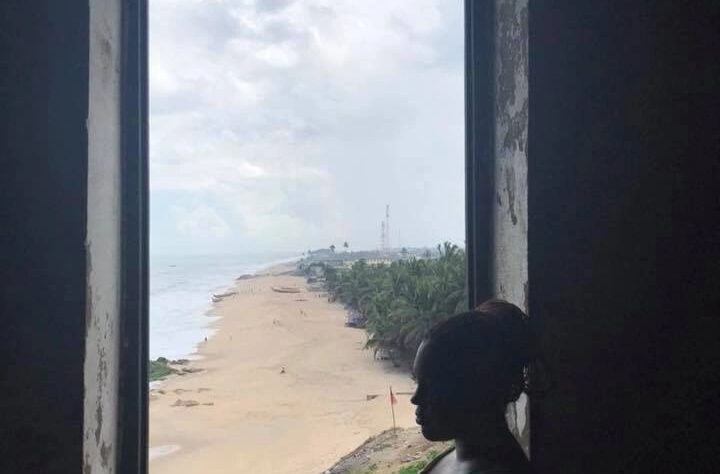As part of our Journey To Womb Wealth, we asked folks to take a #wombwealthaction and share their story. The following story is from E.E., a Nigerian woman who shared her story with us online.
How did you find out about your fibroids? Did you feel heard by your GYN?
I actually had a very frank and open conversation with my OBGYN. The clinic I went to was actually a well-known fertility clinic, and the majority of the patients were women seeking IVF options. The lobby walls had glossy photos of newborn babies and happy-looking couples. At my first consultation, I was surrounded by pregnant women in the waiting room. So when I finally got to see the doctor, I began by apologizing that I was there to ask him to do the opposite of what his clinic was all about. I didn’t/don’t want children and thought he was going to preach to me about the blessings of children and how I needed to give my decision more time.

I remember him taking my hand and saying he would support me in whatever decision I took and simply asked me to share all my questions with him. He never once asked me, “Why?” or suggested that I take my time with my decision. I just blurted out that I wanted a hysterectomy and wanted to know the steps to take.
He began by drawing me a picture of my fallopian tubes and the rest of the female reproductive system, even though there were images of them all over his office walls. He drew the position of where my fibroids were most likely, and then there was the first examination to determine how many fibroids there were and what options were open to me.
After the examination, I remember him sighing and saying, “You have a lot of fibroids – over 20, from what I can see.” They’ve probably been there a while and are causing a lot of discomfort.”
I suspected I had fibroids. Lots of internet searches and reading up on what causes them told me so. I had the typical symptoms; heavy long, and painful periods. At one point, I was drinking apple vinegar cider like my life depended on it because I read somewhere that it can magically make your fibroids disappear or reduce heavy flows.
And I was tired of having to schedule work trips around my periods. My work requires I travel frequently. During one work trip, I got stuck in an elevator while on my period. My fear was not that the hotel wouldn’t get me out of the elevator safely. It was that by the time they found me, I would be in a pool of my own blood!!! The panic that set in made me scream bloody murder!
There are two options for a hysterectomy: complete and partial. A complete hysterectomy means the removal of your cervix too. I chose a complete hysterectomy, but my doctor advised against it. Perhaps it was because he’s Nigerian, and he said, “Well, you should get to enjoy sex afterward, so no need to remove your cervix. Unless you hate men!”
The Operation and Recovery
On the day of the operation, I suddenly had second thoughts. Though I was confident in his ability to do the surgery, thoughts of things going wrong swirled in my head. I choose to do the operation in Nigeria, in a small hospital. The staff was lovely enough, but it was the system – the Nigerian health system where everything can go wrong – that suddenly paralyzed me.
I remember thinking: I haven’t thought this through! What if I die? I had told no one, not even my family, that I was having a major operation. I lied about my car having some mechanical issues and asked my brother to give me a ride to “somewhere.” He didn’t know he would be taking me to the hospital, and when he found out, I simply said, “Well, we’re here now, and I’ve already paid!”
Before the operation, I had a small checklist for the hospital management team: is there diesel for the generator? Do you have extra blood in case I need an infusion? Is the night staff on standby? Do you have my pain medication? I also insisted on checking out the operating room and inspecting it. I wasn’t sure what exactly I was inspecting it for. All the equipment was foreign to me, and I wouldn’t necessarily have known if something was amiss. But it felt good to do the walk-through. It somehow calmed me down.
The next day at 10 am, on a Sunday, was the day of the surgery. It’s a weird, almost out-of-body experience just laying in bed anticipating being cut open. If you let yourself, you could spiral into the abyss of negative thoughts and panic uncontrollably. And so, with nothing to do but wait and watch the clock, it’s no wonder I got angry when the operation started almost an hour later than scheduled because one of the doctors was stuck at church. 😤
But once everyone was there, suited up and ready to go, I remember shaking again from nerves. I didn’t really want the doctor who was late to touch me; his attitude bothered me. Let’s call him Doctor B. Doctor B kept apologizing and then suggested I play whatever music I wanted during the operation to calm me down. I choose classical music. Doctor A, my OBGYN, was in good spirits and kept saying, “I feel good about today. Do you?” I shook my head. “No.”
During the operation, out of nowhere, I started crying. I wasn’t in pain (they had given me an epidural), and both doctors were puzzled about the tears. At one point, Doctor A said, “I need you to stop crying. It’s distracting.” Maybe I was upset because they were having an entire conversation about a football match that took place the day before, all while digging inside me and removing my uterus. I had imagined them describing every move they were doing to me, so I could at least feel better about it. So the fact that they were talking about football and that my classical music was failing miserably to calm me down caused more tears to pour out.
At every sniff and sight of tears rolling down my face, everyone in the room would freeze and stare at me. I eventually got myself together and imagined I was somewhere else while they poked and poked and pulled out my reproductive system. In the end, Doctor A said, “I thought you were a big girl. All those tears! My God – such a crybaby!”
The first week after the operation was the worst. It was painful even to breathe. I could not find a comfortable position to sleep in. Everywhere hurt, even my fingers!!
I stayed in the hospital for four days. The doctors wanted me to have a bowel movement before I checked out. I had ordered a drip-pain medication for the pain. And man, that thing worked like magic. I fully understood then why some people can be addicted to it. It felt like this wave of relief would just wash over you, sweetly drifting you off to sleep! I was only on that drug for two days, and then Doctor B refused to give me any more. “You need to be able to work through the pain,” he said. See, not a nice person at all!!! Lol.
The recovery part was learning to walk all over again. The nurses took turns taking me for walks around the hospital. I would hold on to the walls and gasp for air after every two steps or so. And they would gently say, “Just a bit more, that’s it. Just another step!”
I fully recovered in about a month. I took an extra two weeks off work just to make sure I didn’t overextend myself. My father wanted to burn down the hospital when he found out after the fact. I remember him coming to the hospital while I was in the middle of one of my drug hazes and hearing him yell at the staff! But I was too high to care and just slept it off.
Surprisingly, I have no scars from the operation. I ended up having over 40 fibroids, and the decision to go with a partial hysterectomy was a good one because rather than removing each fibroid one by one (which would have taken hours and possibly loss of blood), removing the whole “bag” was just a better option. Doctor A called it “removing your basket rather than taking the eggs out of the basket one by one.”
What suggestions do you have for other women?
1. Do your research. There are probably less invasive methods now that may be even cheaper.
2. Have multiple consultations with your doctor. Ask all the questions over and over and over again.
3. Be sure in your decision. Though I didn’t discuss my operation with anyone, I was certain of what I wanted. It’s probably best to discuss with others, too, though. Knowing you are not alone and that there is a support group is helpful. I checked out some online forums and participated in a few. But this is the first time I’m actually talking about it publicly in detail.
4. Be comfortable with your doctor. Trust him/her. If you’re like me, get their family numbers too. I wanted access to my doctor at all times should anything go wrong. Luckily nothing went wrong.
How do you feel now?
I actually feel good about my decision and don’t regret it. The freedom of not tracking periods is such a relief. You actually still get “periods” after a hysterectomy, but it’s more like spotting and so infrequent I barely notice them.
This blog post is presented in the writer’s own words. Thank you, E.E., for taking this #wombwealthaction and sharing your story. We believe there is healing power in our storytelling.
Do you want to share your story? Please let us know. DM us @traveldeeperinc or email us at info@traveldeeperinc.com.




